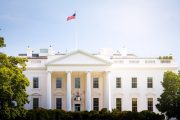
As the sprawling surveillance site being constructed by the National Security Agency (NSA) in Utah grows larger and nearer completion every day, the domestic spy service remains tightlipped about just how much and what kind of personal electronic data they have already collected and collated. Not only does the NSA refuse to provide such information, it insists that it cannot be forced to.
In July of 2011 and again in May 2012, Senators Mark Udall (D-Colo., pictured, left) and Ron Wyden (D-Ore., pictured, right) wrote a letter to James R. Clapper, Jr., the Director of National Intelligence, asking him a series of four questions regarding the activities of the NSA and other intelligence agencies regarding domestic surveillance.
In one of the questions, Senators Udall and Wyden asked Clapper if “any apparently law-abiding Americans had their communications collected by the government pursuant to the FISA Amendments Act” and if so, how many Americans were affected by this surveillance.
The FISA Amendments Act was signed into law by President George W. Bush on July 10, 2008 after being overwhelming passed 293 to 129 in the House and 69-28 in the Senate. Just a couple of days prior to its being enacted Representative Ron Paul and a coalition of Internet activists united to create a political action committee, Accountability Now, to conduct a money bomb in order to raise money to purchase ad buys to alert voters to the names of those congressmen (Republican and Democratic) who voted in favor of the act.
George W. Bush’s signature was but the public pronouncement of the ersatz legality of the wiretapping that was otherwise revealed to the public in a New York Times article published on December 16, 2005. That article, entitled “Bush Lets U.S. Spy on Callers Without Courts,” described the brief history of the “anti-terrorist” program:
Months after the Sept. 11 attacks, President Bush secretly authorized the National Security Agency to eavesdrop on Americans and others inside the United States to search for evidence of terrorist activity without the court-approved warrants ordinarily required for domestic spying, according to government officials.
Under a presidential order signed in 2002, the intelligence agency has monitored the international telephone calls and international e-mail messages of hundreds, perhaps thousands, of people inside the United States without warrants over the past three years in an effort to track possible “dirty numbers” linked to Al Qaeda, the officials said. The agency, they said, still seeks warrants to monitor entirely domestic communications.
It’s not the eavesdropping that’s the most egregious violation of the Constitution and the Bill of Rights (such activities are conducted by law enforcement all the time for legitimate purposes), but it’s the indefensible fact that the federally empowered snoops conduct this surveillance without a probable cause warrant so long as one of the parties being monitored is located outside the territory of the United States. The justification being that if an American is talking, texting, or emailing a foreigner then something might be said that would aid in the acquisition of “foreign intelligence information.”
This policy is such a shameful disregard for our long history of individual-based human and civil rights (including the freedom from unwarranted searches and seizures) that it shocks the conscience even when the source is considered.
And the disregard for the Constitution continues in the latest round of amendments added to the FISA. Under these recently enacted provisions, the federal government is granted the authority to collect, collate, and catalog the private emails, phone calls, text messages, and social media posts made by citizens of this country that may reach users/recipients outside of the United States — all without a warrant or probable cause.
Regarding the Wyden-Udall inquiry, in a letter dated June 15, 2012, I. Charles McCullough III informed the senators that calculating the number of Americans who’ve had their electronic communications “collected or reviewed” by the NSA was “beyond the capacity of his office and dedicating sufficient additional resources would likely impede the NSA’s mission.”
In other words, the NSA is too busy illegally recording our private emails, texts, Facebook posts, and phone calls to figure out how many of us are already caught in their net. And, furthermore, there is nothing Congress can do about it.
Naturally, Senators Udall and Wyden didn’t take kindly to Inspector General McCullough’s brush off. In a response to the response, the senators told McCullough that they just wanted a “ballpark estimate” of the number of American citizens who have been monitored under the authority of the FISA. In an additional statement released by Senator Wyden he expressed concern that the figure is likely very high:
I am concerned, of course, that if no one has even estimated how many Americans have had their communications collected under the FISA Amendments Act, then it is possible that this number could be quite large. Since all of the communications collected by the government under section 702 are collected without individual warrants, I believe that there should be clear rules prohibiting the government from searching through these communications in an effort to find the phone calls or emails of a particular American, unless the government has obtained a warrant or emergency authorization permitting surveillance of that American.
Given the intelligence community’s disdain for not only the Constitution but for congressional oversight, it is unlikely that the information requested by Senators Udall and Wyden will ever be forthcoming.
Meanwhile, other concerned citizens have filed legal challenges to the snooping, hoping that the courts will be able to compel the NSA to reveal the scope of their domestic surveillance activities.
As The New American has reported, in May the Supreme Court of the United States granted a petition to hear a lawsuit calling for an end to another case challenging the constitutionality of the government’s warrantless wiretapping program.
The American Civil Liberties Union (ACLU) filed this legal challenge to the FISA Amendments Act of 2008 the very day that it became the purported law. The case was filed on behalf of a broad coalition of attorneys and human rights, labor, legal and media organizations who depend on confidential communication to do their jobs. The case was dismissed by the district court, which held that the plaintiff could not provide a threshold level of evidence to support its claim. That decision was later reversed by the Second Circuit Court of Appeals.
It was the Second Circuit’s unexpected reversal of the lower court’s decision that prompted the Obama administration to ask the Supreme Court to consider the case, hoping that a majority of the justices will agree with the district court and return to the NSA the carte blanche gifted it by the previous administration — a status placing them beyond the reach of the legitimate law.
In a press release issued after the Supreme Court’s announcement, the ACLU expressed hope that the Second Circuit’s decision would be upheld:
The appeals court properly recognized that our clients have a reasonable basis to fear that the government may be monitoring their conversations, even though it has no reason to suspect them of having engaged in any unlawful activities. The constitutionality of the government’s surveillance powers can and should be tested in court. We are hopeful that the Supreme Court will agree.
And ACLU legal director Steven R. Shapiro added:
Given the importance of this law, the Supreme Court’s decision to grant review is not surprising. What is disappointing is the Obama administration’s effort to insulate the broadest surveillance program ever enacted by Congress from meaningful judicial review.
While the ACLU and President Obama await the Supreme Court’s decision, Senators Wyden and Udall continue their defense of the Constitution. During the Intelligence Committee’s markup of the FISA Amendments Act extension, Udall and Wyden offered an amendment aimed at prohibiting warrantless searches for Americans’ communications. The amendment was rejected, but Wyden and Udall announced their intention to “keep working to enact protections against the unwarranted and unconstitutional surveillance and search of law-abiding Americans.




